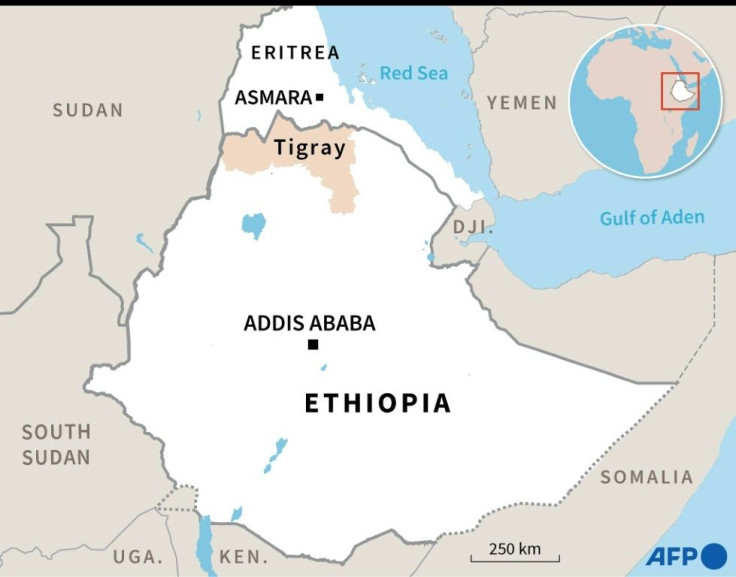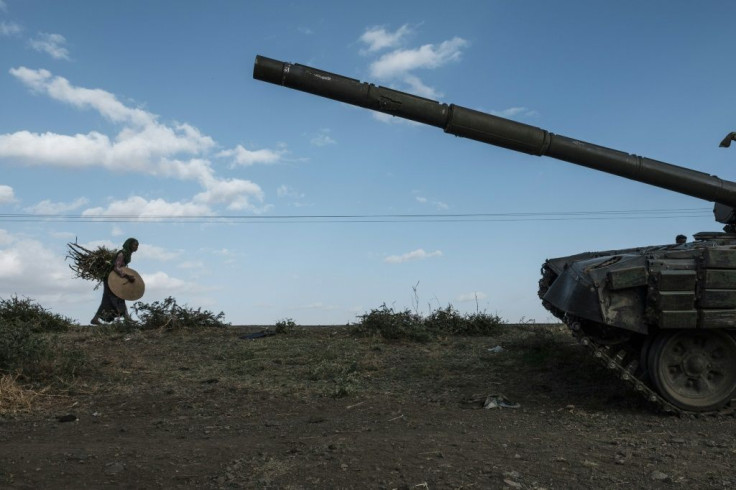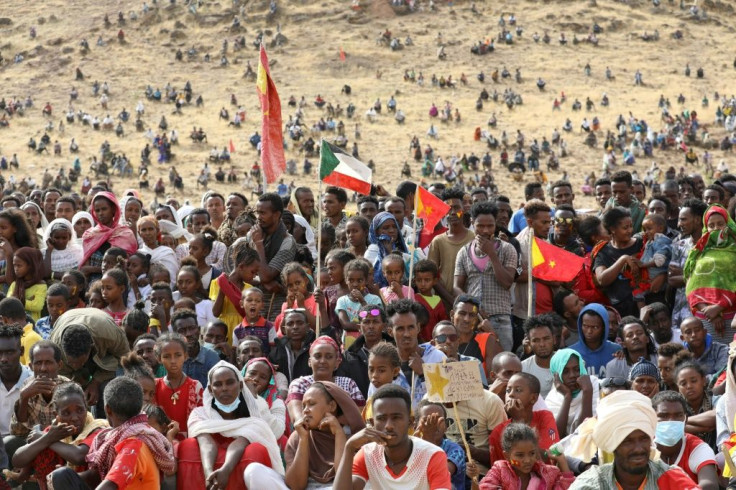Eritrean Troops Killed 'Hundreds' In Ethiopia Massacre: Amnesty
Eritrean soldiers fighting across the border in Ethiopia's northern Tigray region killed hundreds of people in a massacre in a likely crime against humanity, Amnesty International said Friday.
The rights watchdog spoke to survivors of the atrocities and used satellite images to piece together bloody events that unfolded last November in the ancient town of Axum, a UNESCO World Heritage site.
"The evidence is compelling and points to a chilling conclusion. Ethiopian and Eritrean troops carried out multiple war crimes in their offensive to take control of Axum," said Amnesty's Deprose Muchena.
"Above and beyond that, Eritrean troops went on a rampage and systematically killed hundreds of civilians in cold blood, which appears to constitute crimes against humanity."
UN rights chief Michelle Bachelet said she was concerned "by reports indicating the participation of Eritrean troops in the conflict in Tigray alongside the Ethiopian army, and allegations of their implication in cases of serious human rights violations."

But Eritrean Information Minister Yemane Gebremeskel attacked Amnesty for what it called "a fallacious report."
"Eritrea is outraged and categorically rejects the preposterous accusations levelled against it," he said on Twitter.
Tigray has been the theatre of fighting since early November 2020, when Prime Minister Abiy Ahmed announced military operations against the Tigray People's Liberation Front (TPLF), accusing them of attacking federal army camps.
He declared victory after pro-government troops took the regional capital Mekele in late November, although the TPLF vowed to fight on, and clashes have persisted in the region.
The presence of Eritrean troops in Ethiopia in the Tigray conflict has been widely documented but has been denied by both countries.

Eritrea and Ethiopia fought a brutal border war in 1998-2000, back when the TPLF dominated the government in Addis Ababa.
Tensions eased after Abiy initiating a rapprochement, a policy that helped him to win the 2019 Nobel Peace Prize, but Eritrean President Isaias Afwerki and the TPLF remain bitter enemies.
Amnesty said it had spoken to 41 survivors and witnesses who said that on November 19, Ethiopian and Eritrean military forces took control of Axum "in a large-scale offensive, killing and displacing civilians with indiscriminate shelling and shooting."
"In the nine days that followed, the Eritrean military engaged in widespread looting of civilian property and extrajudicial executions."

Witnesses said the Eritrean forces were easily identifiable, via their vehicles, language and unique ritual facial scars, while they also openly declared themselves as such.
The worst violence unfolded after a small group of pro-TPLF militiamen attacked the soldiers' base on 28 November and they retaliated, leaving the town strewn with bodies.
"The Eritrean soldiers came into the city and started killing randomly," said a 22-year-old man who had wanted to bring food to the militia. He described its members as young and barely knowing how to fight.
Residents told Amnesty that many victims in Axum carried no weapons and were running away from the soldiers when they were shot.
"I saw a lot of people dead on the street. Even my uncle's family. Six of his family members were killed. So many people were killed," said a 21-year-old male resident.
The next day the soldiers allegedly shot at those trying to move the bodies, while carrying out house-to-house raids.
One man told Amnesty he saw soldiers line up six men and shoot them from behind in the street outside his house.
Amnesty said it had collected the names of more than 240 of the victims, but could not independently verify the overall death toll.
"Residents estimate that several hundred people were buried in the aftermath of the massacre, and they attended funerals at several churches where scores were buried," said the report.
Satellite imagery showed signs of mass burials near two of the town's churches.
"As a matter of urgency, there must be a UN-led investigation into the grave violations in Axum," said Muchena.
Ethiopian Human Rights Commission (EHRC) chief Daniel Bekele said Amnesty's findings should be taken "very seriously".
The EHRC said in a statement it was also looking into the massacre.
While its investigation was not complete, preliminary findings "indicate the killing of an, as yet, unknown number of civilians by Eritrean soldiers in the city of Axum," it said.
© Copyright AFP 2024. All rights reserved.




















